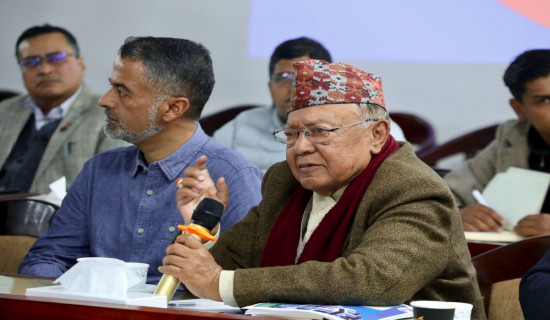- Tuesday, 23 December 2025
Diplomatic Documentation
Institutional memory is vital for the better performance, credibility and sustenance of any organisation or even the state. Institutional memory denotes collective knowledge, practices, information, experiences and lessons. It remains alive through historic documents, records, notes, agreements, archives and databases. If the given organisation or the government fails to preserve the institutional memory, it results in collective amnesia. When the institutional memory is lost, an organisation loses its orientation, efficiency and continuity. So the political leadership, bureaucrats, citizens, media, civic bodies and security wings need to be aware of history and knowledge so that they will form correct opinion and take informed decisions.
For a nation state, institutional memory is essential to frame better domestic and foreign policies because it offers guidelines and perspectives to the policy makers. The historical documents help understand the past and give ample insights into the present and future. Therefore, archives are the key to prevent the possible loss of the collective memory of the state. Their importance is even higher in preserving diplomatic and strategic information of a nation. Matters relating to the foreign relations are considered sensitive. The ties with neighbours and friendly nations should be handled with caution, intelligence and tact. Any slip-up will have negative repercussions for the bilateral ties. The political leaders, diplomats and other stakeholders should rely on historical documents such as agreements, treaties and maps before making any remark or judgement on the bilateral or multilateral issues.
A news report, published in this daily on Sunday, has disclosed that Nepali diplomatic missions have not attached due priority to creation, management and digitalisation of information. The officials at the Ministry of Foreign Affairs (MoFA) and former ambassadors have admitted that maintaining archival system has not been any specified task of the diplomatic offices. Experts and researchers often face quandary when they do not find historical documents from the concerned missions to prove their statements. A culture of secrecy and complacency has infested the bureaucracy to the extent that the authorities refuse to provide documents or information related to the bilateral agreements and correspondences, considering them sensitive. There is the need for a clear policy to classify or declassify such documents so that scholars have an access to them. But the sad fact is that Nepali scholars and researchers have to rely on foreign libraries to get access to historical documents and maps.
With the technological innovation, digitialisation of the vital information and historical evidences has become easier, reliable and cost-effective but the MoFA has said that it lacks necessary resources to execute these tasks. The budget allocated for the Ministry and missions is barely enough to meet the administrative costs. Now it is mulling to set up a dedicated 'Documentation Unit' with a view to archive old and historical records. The ministry needs adequate budget not only to preserve and archive the valuable documents but also to effectively promote economic diplomacy abroad. Nepal's diplomatic missions abroad should properly handle the traditional filing and archiving of the documents. The leadership of the ministry should realise the importance of the historical documents that arm the negotiators with sufficient evidence to put up his/her arguments before the foreign delegates effectively. Nepali missions should also be engaged in opening libraries where historic books, documents and records are available to the visitors.

















